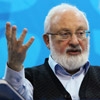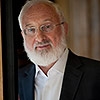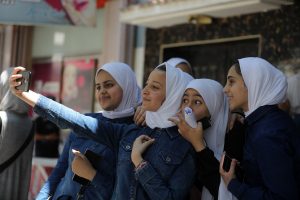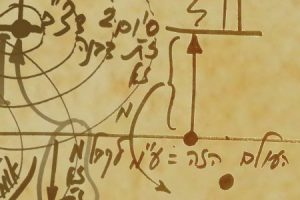Daily Kabbalah Lesson – 7/31/22
Preparation to the Lesson
| [media 1] | [media 2] |
Lesson on the Topic “Memorial Day of the ARI”
| [media 3] | [media 4] |
Selected Highlights
| [media 5] | [media 6] |

Preparation to the Lesson
| [media 1] | [media 2] |
Lesson on the Topic “Memorial Day of the ARI”
| [media 3] | [media 4] |
Selected Highlights
| [media 5] | [media 6] |
Listen to an Audio Version of the Blog
Download:MP3 Audio
 At the end of the day, this is a group of people who have gathered in a certain place, under a certain leader, to be together. With superhuman courage they face up to all those who rise against them. Indeed, they are brave men with a strong spirit, and they are determined not to retreat one inch. They are first-class fighters, fighting the war against the inclination to their last drop of blood, and their only wish is to win the battle for the glory of His name. (Rabash, Letter 8)
At the end of the day, this is a group of people who have gathered in a certain place, under a certain leader, to be together. With superhuman courage they face up to all those who rise against them. Indeed, they are brave men with a strong spirit, and they are determined not to retreat one inch. They are first-class fighters, fighting the war against the inclination to their last drop of blood, and their only wish is to win the battle for the glory of His name. (Rabash, Letter 8)
See how Rabash writes? A small handful of people! The most important thing is that they should be in the same intention and be directed toward the same goal. If they act like this, then their efforts are enough to pierce the wall between them and the Creator, and as if touch the Creator and resume contact between Him and through themselves with all mankind.
These are people who unite and want to reach the Creator, to “prick” Him, get in touch with Him. Nothing else is needed, 10 people are enough to make contact with the Creator, and through these people a continuous connection between the Creator and humanity will begin. That’s what we have to achieve.
We can do it. We are created to do this. Let’s try even harder, even deeper, even more purposefully to move toward the Creator and achieve this. This is called “My sons have defeated Me.”
So let’s not retreat a single step and continue our efforts, to prick the Creator so that He will be obliged to respond to us, draw us to Him, and through us, get in touch with the whole world, with all mankind.
[300751]
From the “Arava” Convention in Europe – Lithuania 2022, Lesson 1, 7/22/22
Related Material:
Rabash’s Letter To Us
At The Threshold Of A New Degree
A New “Computer” On Every Degree
 Spiritual light is the influence of the Creator on the will to receive, which is called creation.
Spiritual light is the influence of the Creator on the will to receive, which is called creation.
The Creator is the source of everything that exists and the light is His influence on creation.
According to the form in which the creation receives light, it can feel it as pleasure or as something opposite. That is, the light is an influence emanating from the Creator, but the creation must be ready to feel it. Depending on its correspondence to the light, it can feel pleasure from this influence or the opposite.
Light is neutral and creation can change itself. Therefore, everything depends on the creation.
[300661]
From KabTV’s “Spiritual States” 7/19/22
Related Material:
The Imprint Of The Light
What Is the Upper Light?
How Do You Measure The Upper Light?
 Question: In the 1970s and 1980s in the Soviet Union, children born with autism and mental retardation were often not given to their parents. They were told that the child had died during childbirth.
Question: In the 1970s and 1980s in the Soviet Union, children born with autism and mental retardation were often not given to their parents. They were told that the child had died during childbirth.
How does Kabbalah view this issue? Should these children be left behind? What is the attitude of Kabbalah to everything living?
Answer: As a divine creation. We have no right to destroy anything.
We have the right to take food from nature—what we are supposed to in normal quantities without causing harm. For this, there are special laws of slaughter, cooking, and so on.
Just as animals eat animals, so we must eat them within reasonable limits, and this is not considered a violation of the balance of nature. Everything is created this way.
We must strive to do no harm or unnecessary pain to anyone. Any creature, no matter how it was born, has the right to exist. It is not for us to decide who should live and who should not.
[299525]
From KabTV’s “Close-Up. Special Territory” 5/17/11
Related Material:
Everything Will Be Fine
There’s A Place For Everything
Nature Does Not Tolerate Imbalance
 Comment: Genome research is based on wave genetics. These studies are accepted with hostility by ordinary genetics, but they arouse great interest.
Comment: Genome research is based on wave genetics. These studies are accepted with hostility by ordinary genetics, but they arouse great interest.
According to academician Peter Garyaev, the project of studying the human genome, for which fabulous money was spent, led to disappointing conclusions that a person in his genome is no different from an animal, and not only from an animal.
My Response: Indeed, in our physical state we are animals. Only a state when we rise to the level of a single thought, which is an eternal perfect holographic, integral, analog system, can we be called man.
[300067]
From KabTV’s “Close-Up. Human Genome” 7/17/11
Related Material:
The Genetic Map Of Humanity, Part 1
Will Genetic Engineering Solve Humanity’s Problems?
Cursing And DNA Death
 From My Facebook Page Michael Laitman 7/29/22
From My Facebook Page Michael Laitman 7/29/22
It is said that educated people do not fight. Because of it, Israel invests a great deal in the education of Palestinians in East Jerusalem. In recent years, the number of Palestinians studying under the Israeli curriculum has increased significantly. According to a story published in Haaretz, “In the past five years the number of such students in the … Israeli program has climbed 160 percent.” There is no question that Israeli schools and universities offer better education and more opportunities to develop academic and professional careers. However, this will not make Palestinians more moderate toward Israelis. If anything, they will use their knowledge to kill us more efficiently.
First of all, not only Palestinians, but all of us are motivated by ill-will, as it is written, “The inclination of a man’s heart is evil from his youth” (Genesis 8:21). Therefore, the more knowledge we have, the more power we have, and the more power we have, the more ruin we can bring upon others. In the case of the Palestinians, their knowledge will go toward building firearms and devising tactics to use against Israel and Israelis. If we expect gratitude, we should forget about it.
Second, the hatred that Palestinians feel toward Israel and Israelis cannot be mitigated through knowledge. Mitigating hatred requires a completely different kind of learning. To mitigate hatred, we need to learn specifically how to do that. We need to learn that we are all irreversibly connected, that everything we do affects everyone else and returns to us in an unbreakable cycle. In other words, we need to learn that the only way to improve our situation in the world is to improve the situation of everyone else.
Third, we need to learn that the irreversible connection among people also applies to nations and to all of reality. Therefore, we must recognize that whatever harm we inflict on the world will invariably return to us.
Finally, we must learn that all our conflicts, on every level—from the most personal to the international—happen for one and only purpose: to strengthen our connections. Every time we rise above a disagreement with someone, on any level, we strengthen our connection with that someone. Just as every couple that has been together for many years knows that the secret to a lasting relationship lies in the crises they have overcome together, relationships between countries and nations also strengthen through the trials and tribulations they endure.
Crises force us to increase the importance of our connection, which helps us overcome the dispute. When the dispute is over, we have a stronger connection than before because we have increased its importance in our eyes.
That said, no Palestinian will be willing to learn any of that unless we, Israelis, implement it among ourselves and set an example of the very thing we strive to teach. Unless we bridge the divisions in the Israeli society by increasing the importance of unity among ourselves, no one will believe in our sincerity, hatred toward us will grow, and all our efforts at making peace will fail.
Peace begins at home. Once we make peace among ourselves, others will want to learn from us and will therefore make peace with us. They will learn from us even if we do not teach, since our example will show the way. However, the opposite is also true: If we fight against each other, everyone will fight against us, as is the case today.


Michael Laitman, On The Times of Israel: “What a Summer of Exclusion Feels Like”
A common form of bullying among children in Israel is exclusion. A few days ago, yet another sad story surfaced on Israeli media, describing the social exclusion of children who are going through the summer vacation without any friends because they were excluded. The story featured regular children, well dressed, articulate, perfectly normal children whose paths crossed with someone who did not like them and managed to turn the whole class against them. Exclusion has become the dread of many schoolchildren and parents, and the phenomenon seems to have no solution at the moment.
I think it is not the children’s fault. It is not the fault of the excluded, and not the fault of the children who exclude. It is the fault of the adults. Because adult society is deeply hostile, and alienation and ill-will prevail, it seeps into all parts of society, including the children’s society. As a result, children are excluded, abused, and bullied by their peers. The problem will not be solved until adults solve it among themselves, and that will mend the situation everywhere else.
With such a fractured society, it cannot be any other way. Everyone feels superior to others, and our egos make us inconsiderate and abusive toward others just to assert our superiority. From here to exclusion of others, there is a very short distance.
When this is the atmosphere in the adult society, it has to trickle down the system and reach the children’s society. But when children who had experienced exclusion grow up, the bitter memory of their ordeal will stay with them and impact their attitude toward society.
This is fertile ground for rearing misfits and psychopaths who seek to avenge society for the pain it had caused them. Because their world was ruined by the society, they will strive to ruin the society in return.
The only solution to the menace we are preparing for ourselves is to work on our cohesion and solidarity. Unless we strive to increase our unity in the adult society, above all the differences between us, we should not expect children to do the same. If we fight against each other, gossip, slander, and vilify others simply because they are different from us, we should not expect children, who learn by example, to be kind and caring toward their peers.
Children reflect their role models, and their role models are us. Since we exclude, so do they.
Once we change ourselves, we should also change our education system. Our games should change from fierce competition to collaboration and inclusion. Through games, we can teach children to find the benefit in togetherness, friendship, and solidarity.
There can still be challenges in games, but the challenges should be such that only when children collaborate, they can succeed. Gradually, they will learn that they are stronger together, and how the unique qualities of every child make the whole a stronger unit. We must do this, and do it quickly because our society is raising angry, vengeful children.
[300954]
Medium published my new article “Hunger Is a Rolling Snowball”

The rising inflation around the world and the foreboding food shortage has created a snowball that is rolling down the mountain straight toward us. No one is safe. Some countries are more vulnerable than others, but everyone is in harm’s way. We have the power and the ability to mitigate the situation, perhaps even solve the crisis altogether, but it depends on how we relate to one another, to Earth, and to wars, namely to all the problems that really do disrupt our lives — not hunger, but our hatred for each other, which causes the hunger.
The crisis will affect everyone everywhere. The western world will cope with it better than disadvantaged third world countries, but everyone will feel the heat. In poorer countries, however, it will be a very serious crisis, and the only way to prepare for it is through international cooperative efforts to prepare and mitigate the event.
There are also technological solutions. Israel, for example, has numerous technologies to increase plants’ yields, decrease their dependence on water and soil, boost their immune systems, and make them less sensitive to extreme weather events.
In short, the ways and means to overcome the food crisis are there, the resources are there, and the means of production are there. We could overcome the crisis easily were it not for one glitch: Every country thinks only of itself, and if it does think of another country, it is always around the lines of “How can I use it to benefit myself?” without any accountability or regard for the exploited country.
This is why I am not optimistic. While the problems may not be unsolvable, we cannot solve even the smallest among them, as we see today, because we are failing one another.
Alone, even the strongest country cannot ride the storm unharmed. But together, nothing can harm us. When we let the ego set the tone, we end up with a world of scarcity, hostility, and destruction. But when we rise above it, we ride the whitecaps of the waves like surfboards.
We have turned human society into a snake-pit. The only time we avoid biting one another is when we are afraid that the bitten will bite back harder. But when we see that we will not be hit back, we strike like vipers without any hesitation or remorse.
To make any progress toward a solution, we first need to realize who we are. We need to not only acknowledge our egoism, but also to recognize its deadliness. Unless it hurts us that we are selfish, we will have no motivation to act against it. The only war we really need to fight, if we want to make life better for ourselves, is the war against our own ego. This, in fact, is the kernel of the rolling snowball that is barreling toward us.
It will take a while before we are ready, but in the end, we will have to realize that the only solution to the food crisis is to distribute it evenly. We are not there, granted, but eventually, we will have no choice and it will happen one way or the other.
At the moment, we are so far from such ideas as sharing or caring that countries even burn each other’s crops, which is insanity in terms of the global needs. But when we do not have the world’s needs in mind, and only our own, anything that hurts others seems to make perfect sense.
Therefore, first we must learn how connected we are. We must understand that by hurting others, we invariably hurt ourselves, even when we do not feel it right away. Next, we must learn how to conduct ourselves in line with the understanding that we are all connected and dependent on each other.
Once we understand that we have no choice but to take care of each other as we take care of ourselves, since by doing so, we are actually helping ourselves, we will understand what to do, what not to do, and how to do what we need to do so that everyone gets what they need. Then, everyone will be satiated, safe, and happy. We can stop the ball from rolling; the choice is in our hands.
[300919]
 Michael Laitman, On Quora: “ How hard is it for a person who isn’t a Jew to understand the Torah? “
Michael Laitman, On Quora: “ How hard is it for a person who isn’t a Jew to understand the Torah? “
Understanding the Torah requires study of the wisdom of Kabbalah, which is open to everybody regardless of religion, nationality, gender or age.
At the outset, the Torah appears to be a historical tale, but Kabbalah reveals it as a method of correction and a textbook on the structure of the upper world.
By advancing in the method of Kabbalah—the method of correcting our egoism, i.e. a gradual transformation of our inborn intention to enjoy for self-benefit to an intention to bestow—we come to understand the Torah through the attainment of the upper world that it describes.

Written/edited by students of Kabbalist Dr. Michael Laitman.